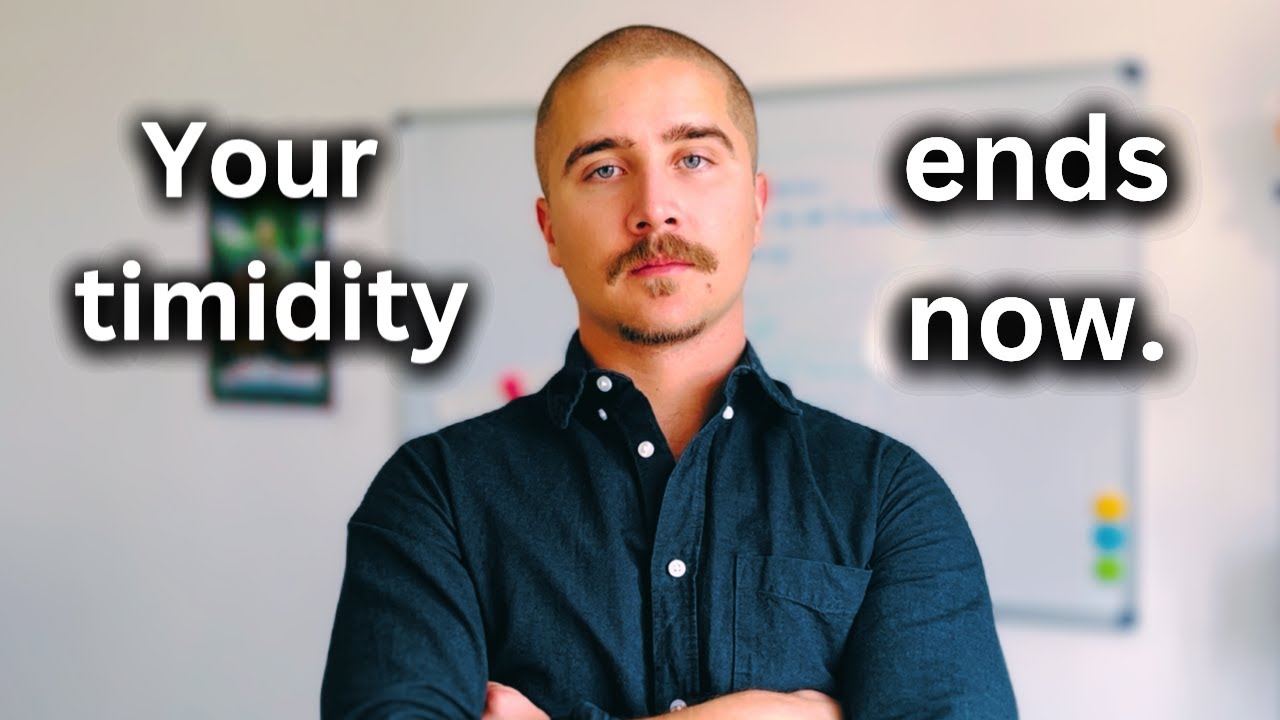How To Say No To People
Summary
TLDRThe video script is a comprehensive guide on the art of saying 'no.' The speaker, Hamza, shares personal anecdotes and strategies for asserting oneself, especially in challenging situations like parental pressure or unwanted social engagements. He emphasizes the importance of 'no' in living an authentic life, avoiding regrets, and focusing on personal goals. Hamza outlines three key steps: understanding the value of 'no,' saying it politely without burning bridges, and handling the consequences. The script encourages viewers to embrace their autonomy and make decisions that align with their true selves.
Takeaways
- 📚 The importance of learning to say 'no' is emphasized, as it is a critical skill for living a life true to oneself rather than one that others expect.
- 👨🎓 The speaker shares personal experience, evolving from a 'people pleaser' to someone comfortable with rejecting others' demands, indicating personal growth is possible.
- 🔑 The video promises to teach viewers how to say 'no' in various challenging situations, including to authority figures and in significant life decisions.
- 💡 The script introduces the concept of 'essentialism', advocating for focusing on fewer but more meaningful activities and relationships.
- 👴 It challenges the notion of always following parental advice, suggesting that parents may not always have the best guidance due to outdated perspectives or lack of knowledge about current opportunities.
- 🚀 The speaker encourages viewers to forge their own paths, even if it means going against traditional expectations, to achieve personal fulfillment and success.
- 🤔 The script highlights the value of introspection, using the example of considering a new business venture and deciding against it after careful thought and seeking advice.
- 🛑 Saying 'no' is presented as a way to avoid distractions and maintain focus on one's core goals and values, which can lead to greater success and happiness.
- 💬 The art of polite refusal is discussed, with strategies for saying 'no' without causing offense or burning bridges, which is crucial for maintaining healthy relationships.
- 👫 The repercussions of saying 'no' are acknowledged, but the script argues that success in one's endeavors can often mitigate any negative social consequences.
- 🤝 Authenticity in relationships is promoted as the key to forming meaningful connections, suggesting that being true to oneself attracts compatible individuals.
Q & A
What is the main message of the video about saying no?
-The main message of the video is to teach viewers the importance of saying no, how to do it politely, and how to handle the consequences of doing so, in order to live a life true to oneself rather than the expectations of others.
Why does the speaker emphasize the importance of learning to say no?
-The speaker emphasizes the importance of saying no because it allows individuals to forge relationships and a life that align with their true selves, values, and goals, and to avoid the common regret of living a life dictated by others' expectations.
What does the speaker mean by 'monk mode'?
-'Monk mode' is a term used by the speaker to describe a period of intensive work and focus, where one is extremely busy and not available for non-essential activities or engagements.
How does the speaker suggest dealing with parents who have preconceived notions about your life path?
-The speaker suggests living in disguise and lying to such parents as much as possible, pretending to follow their instructions while actually pursuing one's own goals and dreams.
What is the speaker's view on the relationship between parents' success and the advice they give?
-The speaker believes that if parents are not extremely successful, happy, loving, and healed, their advice might not be the best guidance for achieving a different and better life, and it might be wiser to not follow their advice.
What is the term 'essentialist' as used by the speaker?
-An 'essentialist' is someone who believes in focusing on fewer but more meaningful activities or relationships in life, going deep into what truly matters and avoiding distractions.
How does the speaker define 'bandwidth' in the context of saying no?
-In this context, 'bandwidth' refers to one's capacity or availability to take on tasks or commitments. Saying 'I don't have the bandwidth' is a polite way of indicating that one is too busy to take on additional responsibilities.
What advice does the speaker give for maintaining relationships while saying no?
-The speaker advises to be clear and upfront with your no, which is kinder than giving a vague yes. This clarity helps the other person understand your stance and allows them to make plans without you, maintaining respect and potential future engagement.
What is the speaker's opinion on the common regret of dying people as mentioned in the script?
-The speaker's opinion is that the most common regret among dying people is not having the courage to live a life true to themselves, rather than the life others expected of them.
How does the speaker suggest handling the aftermath of saying no to someone?
-The speaker suggests focusing on the essential tasks or goals that led to saying no in the first place. Success in these areas can often mitigate the negative feelings from others and may even bring them back around to support you.
What is the speaker's stance on being authentic in relationships?
-The speaker strongly advocates for authenticity in relationships. He believes that being true to oneself and receiving genuine responses from others is the only way to form meaningful and healthy connections.
Outlines

このセクションは有料ユーザー限定です。 アクセスするには、アップグレードをお願いします。
今すぐアップグレードMindmap

このセクションは有料ユーザー限定です。 アクセスするには、アップグレードをお願いします。
今すぐアップグレードKeywords

このセクションは有料ユーザー限定です。 アクセスするには、アップグレードをお願いします。
今すぐアップグレードHighlights

このセクションは有料ユーザー限定です。 アクセスするには、アップグレードをお願いします。
今すぐアップグレードTranscripts

このセクションは有料ユーザー限定です。 アクセスするには、アップグレードをお願いします。
今すぐアップグレード関連動画をさらに表示

Cara Memberi Salam dalam Bahasa Prancis ll Greeting in French

How To Be More Assertive

The Power of 'No'

Elements & Principles of Art & Design #Elements #Principles #ArtEduc #Learn #VisualArt #Artistry

10 Side Hustles That Could Replace Your Job

Investors' Principles of Silicon Valley Taught in Stanford MBA | Ilya Strebulaev
5.0 / 5 (0 votes)
